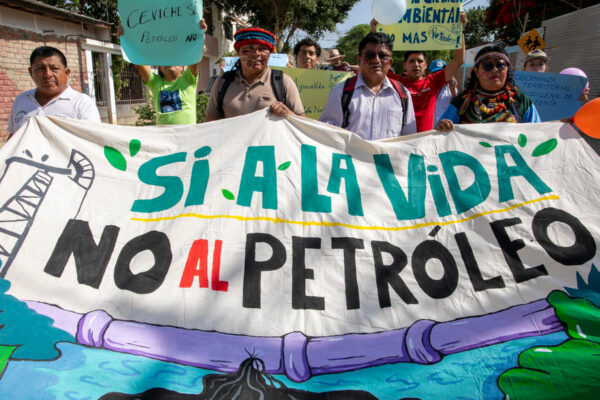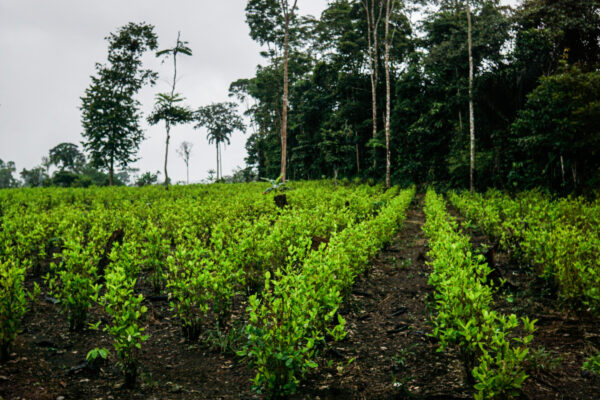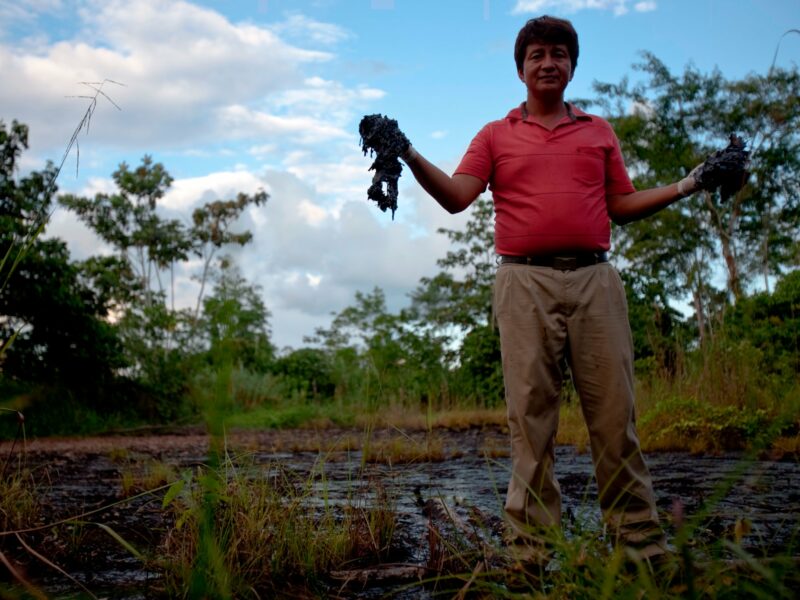If it’s not being pressured in the north by incursions from left-wing Colombian rebels or in the south by political tensions with neighboring Peru – with which it’s been to war three times since World War II, most recently in 1995 – Ecuador faces protests from disaffected locals. The recent drop in oil prices, the country’s prime source of export revenues, merely adds to the woes.
But things might – just – be looking up. During a meeting earlier this month between Ecuadorean President Gustavo Noboa and his Peruvian counterpart, Alejandro Toledo, the two sides pledged to freeze military spending in border areas, and to build a 31,000 barrel per day pipeline linking producing blocks in southeast Ecuador to Peru’s oil transportation network. The 91 kilometer North Peruvian pipeline, expected to be operational early next year, will give private producers in Ecuador an outlet for a small portion of their output until Ecuador’s flagship 450,000 b/d heavy oil pipeline (OCP) is built.
Production now amounts to about 435,000 b/d, roughly 3% up on last year. Officials hope that the opening of the North Peruvian line will boost this by another 7% next year, as it will enable private producers to open the taps on some of the 100,000 b/d of output they now have to shut in for lack of space on export pipelines. Ecuador has two lines, the 400,000 b/d Sote and the 45,000 b/d Trans Andean pipeline, which runs through Colombia. But with state Petroecuador given priority, private firms are allowed to export only 160,000 b/d. Once the OCP opens, Petroecuador will be left with sole use of the Sote.
The aim is to complete the $1.1 billion OCP by late 2003. But it has already run into problems. Indigenous groups, backed by environmental organizations such as Amazon Watch, are trying to prevent Argentine construction company Techint from clearing a path for the pipeline in the Mindo forest area. The protests have garnered international attention, with German environmentalists targeting Westdeutsche Landesbank, which lent the OCP consortium $900 million.
Compounding problems, the OCP group – Techint, Alberta Energy, Kerr-McGee, Occidental Petroleum, Repsol-YPF, and ENI – is under attack from authorities in the port city of Esmeraldas, near the end of the line, who claim Techint has failed to secure the necessary construction and environmental permits. A disgruntled Noboa says around 100 soldiers will be sent to guard the line while it’s being built.
Potentially more worrying is the dizzying fall in the price of Oriente. It is now fetching around $15.35-$15.44 per barrel, roughly half its level last October. In drawing up calculations for next year, the government is now basing its budget on Oriente at $18.50/bbl, down from an original $20/bbl, and cutting the overall budget to $5.38 billion (EC Oct.19,p7).
Nonetheless, key officials are surprisingly optimistic: Finance Minister Julio Emanuel says he is confident that prices will fluctuate between $19-$20/bbl in the medium term, particularly if the US “broadens its ‘war on terrorism’ to include oil-exporting countries.” Emanuel has suggested pre-financing some oil sales as a way of paying off Ecuador’s $135 billion foreign debt, which amounts to 77% of GDP. The government projects GDP growth at 5.5% next year, while Petroecuador says it expects revenues to increase 12% to $3.26 billion thanks to increased production and exports. The state company plans to auction off 13 exploration blocks by next April. Eleven lie in the eastern Amazon, and two in the offshore Guayaquil Gulf area.
But prospects are still hazy on the marketing front. Earlier this month, Petroecuador was forced to retender 96,000 b/d of Oriente term contracts after customers balked at its proposed new official selling price for the heavy sour crude – $640/bbl under West Texas Intermediate. Coastal eventually signed up for two 12,000 b/d contracts at $6.97 under WTI, followed by Citizens Energy and Anglo Energy with two more 12,000 b/d contracts each, and Enron and Rio Energy with one each. But Petroecuador subsequently canceled the Rio and Citizens contracts, awarding one of them to Chevron Texaco.













